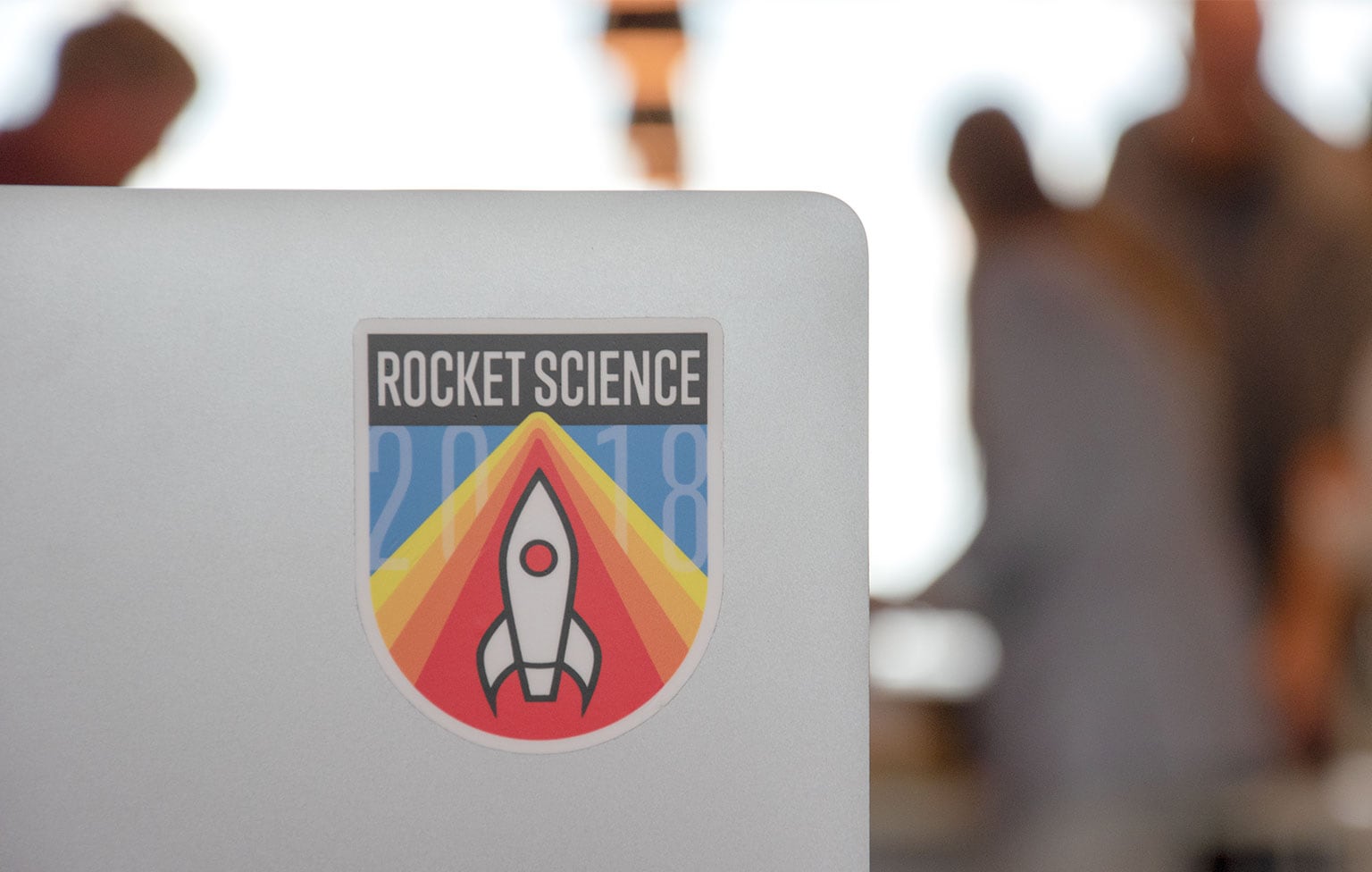Rumblings of newly released features and tools from WWDC and Google I/O have subsided, but that doesn’t mean we’ve moved on from them. Quite the opposite, really.
Each year, we set aside two full days of work to explore emerging technologies, challenge ourselves to learn something new, collaborate with our co-workers, and make something amazing. Bottle Rocket’s annual two-day hackathon, Rocket Science, is a chance for all Rocketeers to explore new technologies or interests while creating something fun for the office or potentially life-changing for its users.
With nearly 30 projects this year, this recap would be a little hefty if we were to cover them all. So, here’s 5 that we can’t stop talking about.
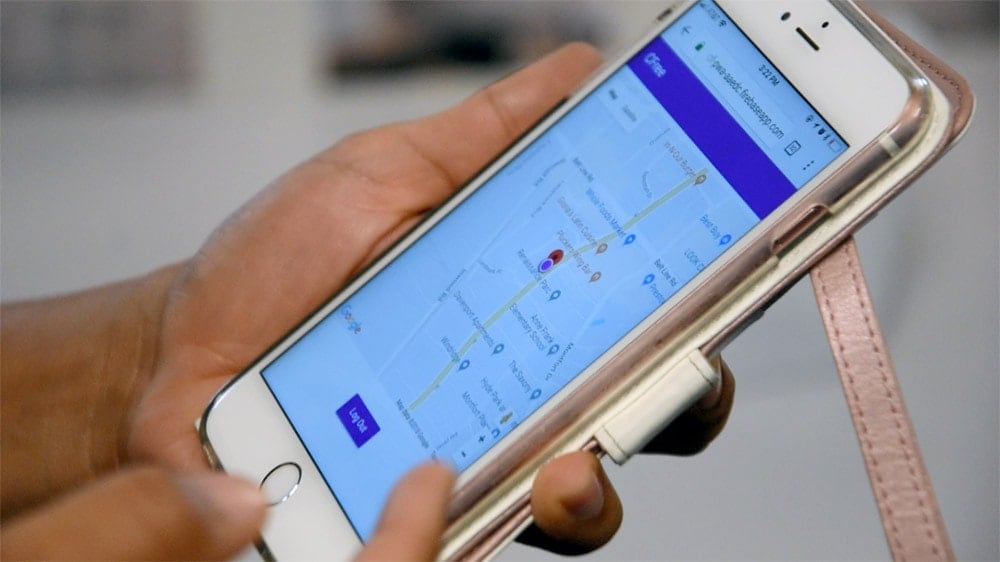
Project Title: CF Alert
Tech Explored: Progressive Web Apps (PWA)
Cystic Fibrosis is a devastating disease afflicting more 30,000 Americans with more than 75 percent of those diagnosed before turning two years old. As if that weren’t enough, children with Cystic Fibrosis cannot be within approximately 20 feet of each other due to the risk of transferring bacteria that can lead to serious infection in other patients. With that in mind, team CF Alert built a proof of concept PWA that would notify parents when another parent of a Cystic Fibrosis child was within 20 feet of them. This PWA concept was simple, elegant, and easy to use, and could potentially be life-saving for families coping with this serious condition.
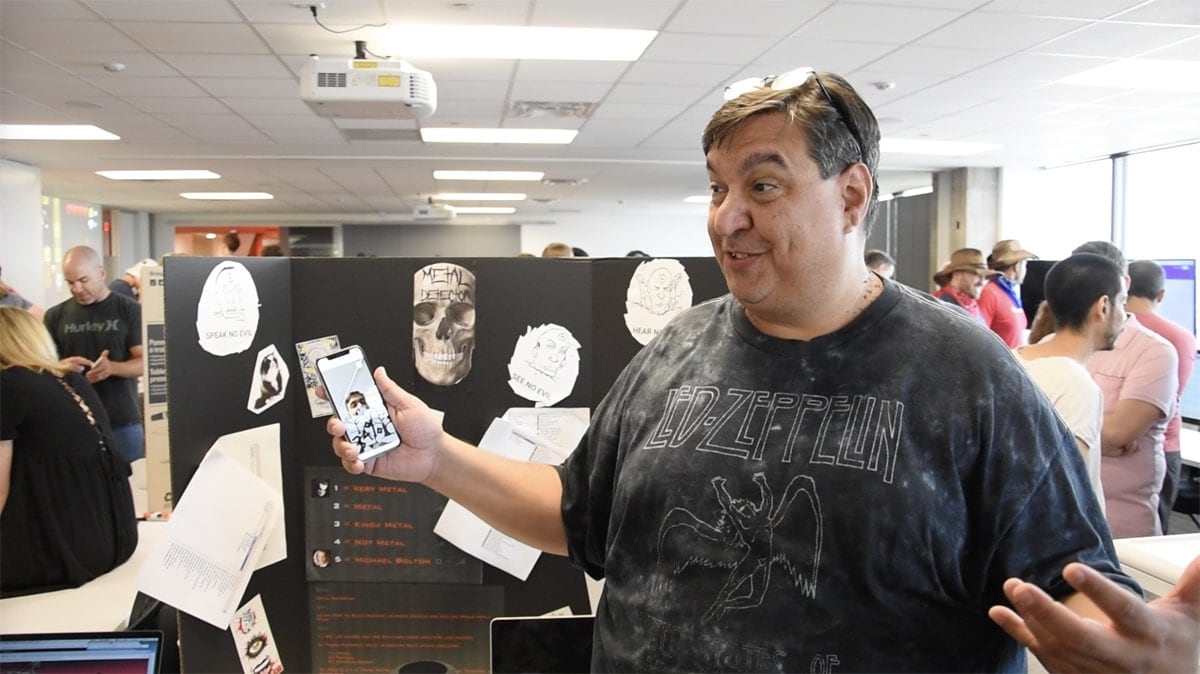
Project Title: How Metal Am I?
Tech Explored: Create ML and CoreML
Leveraging Machine Learning for image and audio frequency analysis, this team looked to answer just how METAL something was. Simply snap a photo or let the “Metal Detector” app listen to the sounds around you and it will provide a Metal Quotient for how hardcore it is. While showcasing the app in the photo above, Russell took a selfie which resulted in a 34% Metal score, which is probably largely due to the Led Zeppelin shirt.
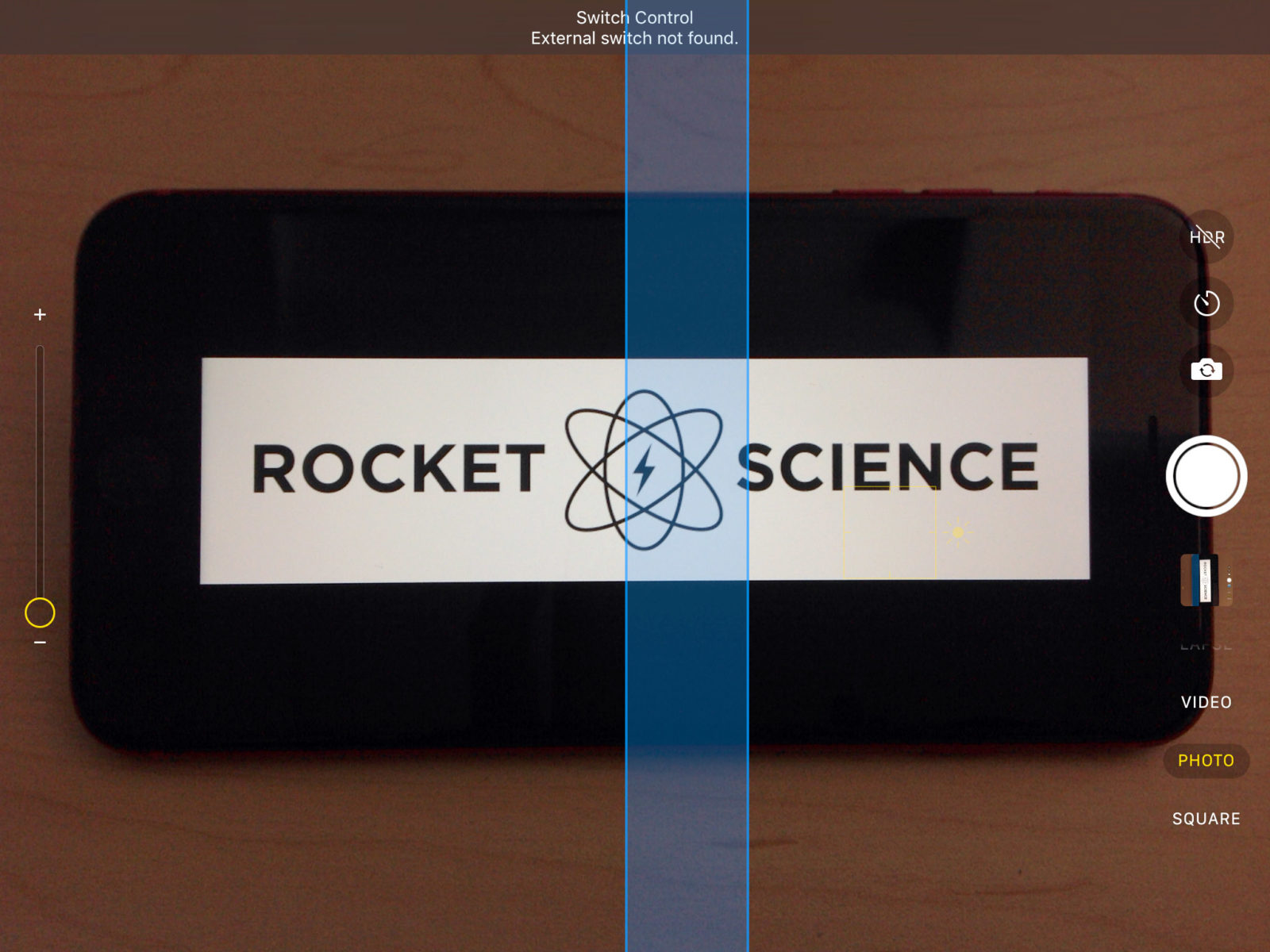
Project Title: Empathy Lab
Tech Explored: Analog
Several accessibility experts at Bottle Rocket worked together to create a truly interactive experience to help others empathize with those that are not able to use traditional inputs for technology that we interact with on a daily basis. For instance, how do you tap on a touch screen when you are unable to use your hands? This team set out to convey those struggles. Seen at the top of this page, the blue bar in the image is actually a form of crosshair that will move across the screen and stop when a Switch is triggered. From there, another horizontal line will appear, and the process is repeated. The user must time their taps to intersect the blue lines over the icon or button they want to click. It’s difficult to imagine what it’s like to have to use these devices in everyday life, but this experience definitely shed some light on the importance of designing with these needs in mind.
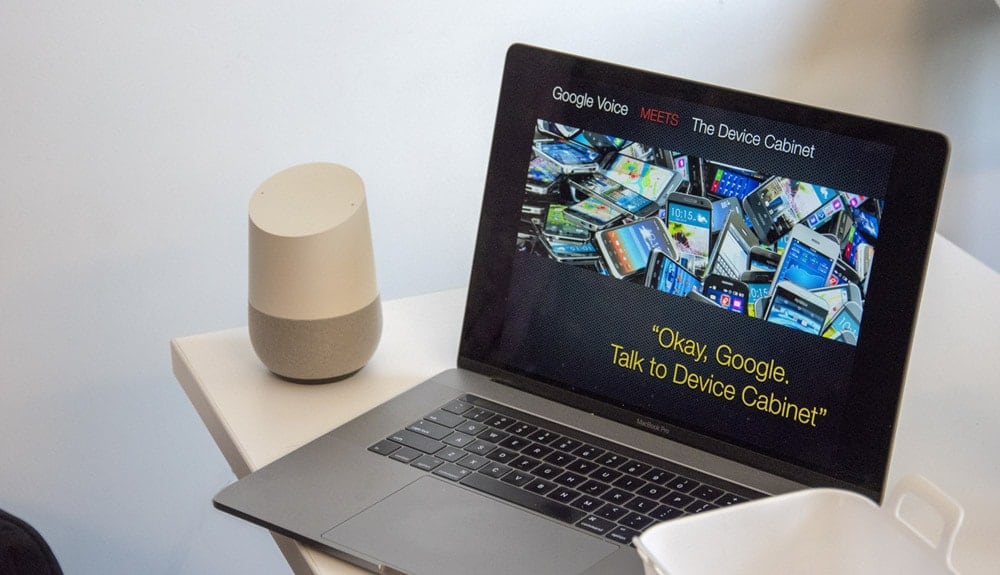
Project Title: Device Manager Voice App
Tech Explored: Google Assistant and Firebase
As Digital Voice Assistant adoption continues to rise, we continue to look for applications of the devices that go beyond simple “questions and answers.” Just as the name says, this team was able to use a Google Assistant App to manage our Quality Assurance device cabinet (which by the way currently includes over 400 devices). Instead of picking out a device, walking up to the checkout system, entering your name, scrolling to find the device (you get the picture), Rocketeers can now walk up and have a conversation with Google to expedite the checkout process.
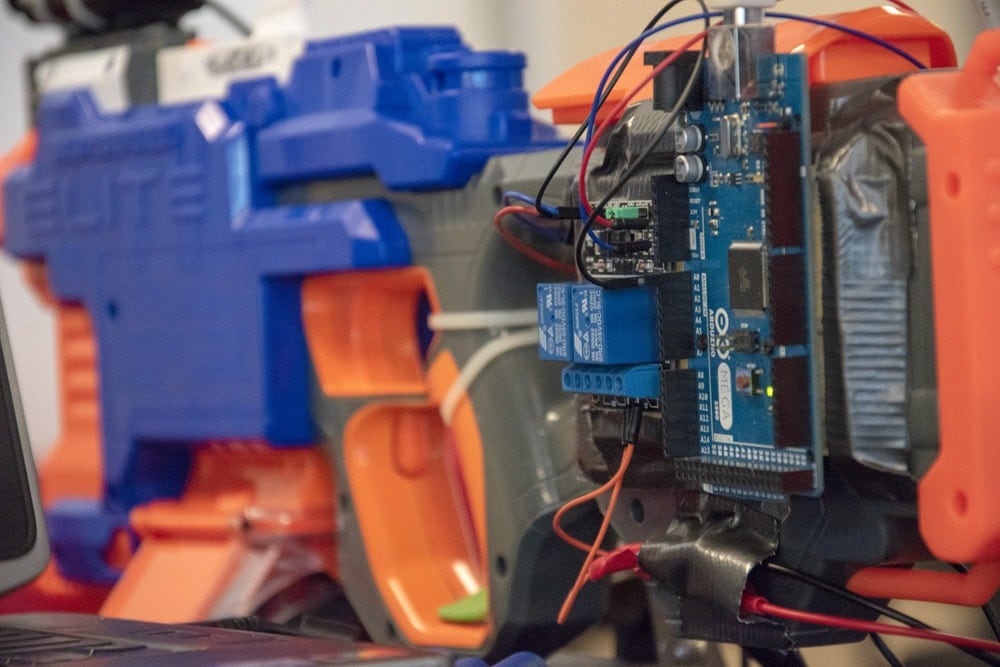
Project Title: BLAST'EM
Tech Explored: Image recognition, Arduino, Machine Learning
Tired of Imperials marching across your lawn? BLAST ‘EM has a solution to rid you of those pesky Stormtroopers. By combining Machine Learning and Arduino supplies, this team was able to create an automated Nerf gun that could recognize a Stormtrooper and fire after finding the target. The best part? They saw about a 25% success rate when using a paper mask, but nearly 100% success rate once Founder and CEO, Calvin Carter, ran over and grabbed his homemade Stormtrooper helmet.
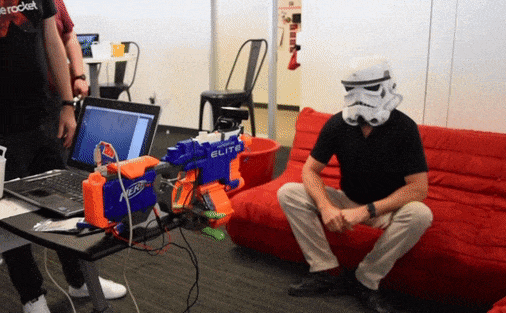
As this year’s 7th annual Rocket Science comes to a close, we would be remiss if we didn’t mention just a few other notable projects that our Rocketeers conceived and created over the course of 48 hours.
- AR Smile: An Augmented Reality app that would place emojis where it detected smiles and frowns in a room
- Mix Up: A PWA for creating and rating cocktails
- OWL Stats ML: A Machine Learning model that attempted to predict winners of Major League Gaming competitions
- AR Multi-Player Piano: An Augmented Reality app that allows multiple people to place virtual keyboards in the real world – then play them and record the audio from their session
- Kegerator 3.0: A team that created a display for the “Double Tap” Kegerator with an app that allows Rocketeers to see what beers are currently available along with the ability to rate them
Our “favorite fail” of the year goes to a team that attempted to teach a computer to play Mario Kart on an iPad, only to find out the emulator and Machine Learning model required different versions of iOS.
Want to learn more about the technologies used in this year’s Rocket Science and how they can benefit your business? Contact us today.
